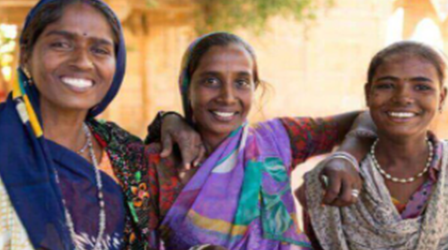

Formative Evaluation
November 30, -0001, Evaluation Observatory

Formative evaluations are carried out at the early stages of the program to provide program practitioners with feedback about the ongoing project’s functioning, helping them improve the program and assess program readiness for summative assessments(Phillips et al., 2018).
Here’s an analogy: A chef wishes to cook a delicious soup for special guests at his restaurant. To ensure that the soup has developed just the right mix of flavours, the chef tastes the soup and adds new ingredients, if necessary, helping the chef make the required changes in its formative stages to realise the intended outcomes.
The purpose of formative evaluation is to improve project implementation, develop capacity and monitor performance (Formative Evaluation (Summary, n.d.)
List of recommended resources:
For a broad overview

-
Prepared by James Bell Associates, this resource serves as an introductory guide to Formative Evaluations for practitioners in human services. This toolkit covers a) An understanding of formative evaluations, (b) Meeting the preconditions to conduct a Formative Evaluation and (c) The steps to design and conduct a Formative Evaluation. The resource also includes relevant case studies and a glossary of key terms.
Case Study

-
Designed and Developed by UNFPA Evaluation Office, this case study illustrates the application of the formative evaluation concepts to the assessment of the UNFPA Innovation Initiative - aimed at generating a cultural shift within UNFPA encouraging its staff to generate, fund and implement innovative ideas”. It explains the evaluation methodology, deliverables and resource requirements in conducting the formative evaluation.

-
Columbia SIPA Teams worked with Middle East Children’s Institute programs(MECI) in Palestine in conducting Formative evaluations to guide improvements in its After-School Program, the Women’s Empowerment Program, and the University Scholarship in Palestine, alongside evaluating its Strategy. It contains a literature review, the objectives and methodologies, overall findings and recommendations.

-
From the Asian Development Bank, this resource may be used as a sample case study to understand the broad structure of Formative Evaluations in strengthening rural primary health service delivery.
Videos

-
Published by Asian Development Bank, this video highlights lessons from a formative evaluation of UNICEF’s WASH programs in the East Asia Pacific Islands.

-
Developed by International Initiative for Impact Evaluation, this video resource describes findings from formative evaluations of health-based interventions in Pakistan, Myanmar, Ethiopia and Nigeria.
Toolkits

-
Developed by the Evaluation Toolbox, this resource provides tools for various categories of formative evaluation at various stages of the project during pre-project and during project implementation stages – including ‘Proactive’, ‘Clarificative’, ‘Interactive’ and ‘Monitoring’ assessments. It also helps practitioners understand the relevant tools used at different stages of formative assessments – including Logframe Matrix, Stakeholder Analysis, Focus Group Discussions, Questionnaires and Budget Tracking
You may also like

Big Data: An Introduction and Application in the Social Sector
August 30, 2021

Building an Evaluation Ecosystem: Perspectives from Evaluation Associations - Key Takeaways from the Webinars
August 30, 2021

GENSA Celebrates One Year, and Keynote by Katherine Hay
August 30, 2021


